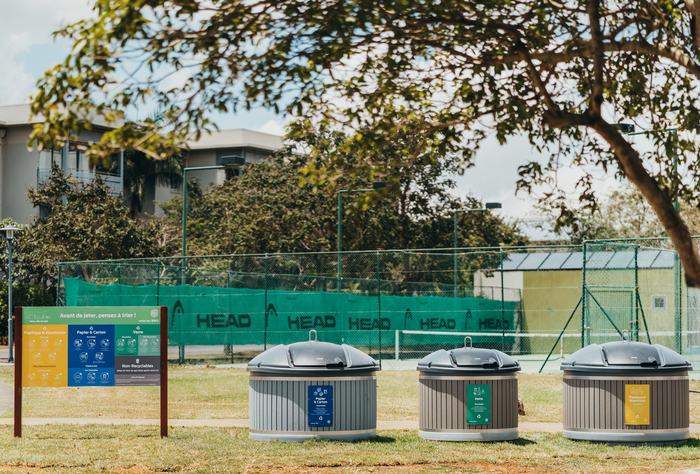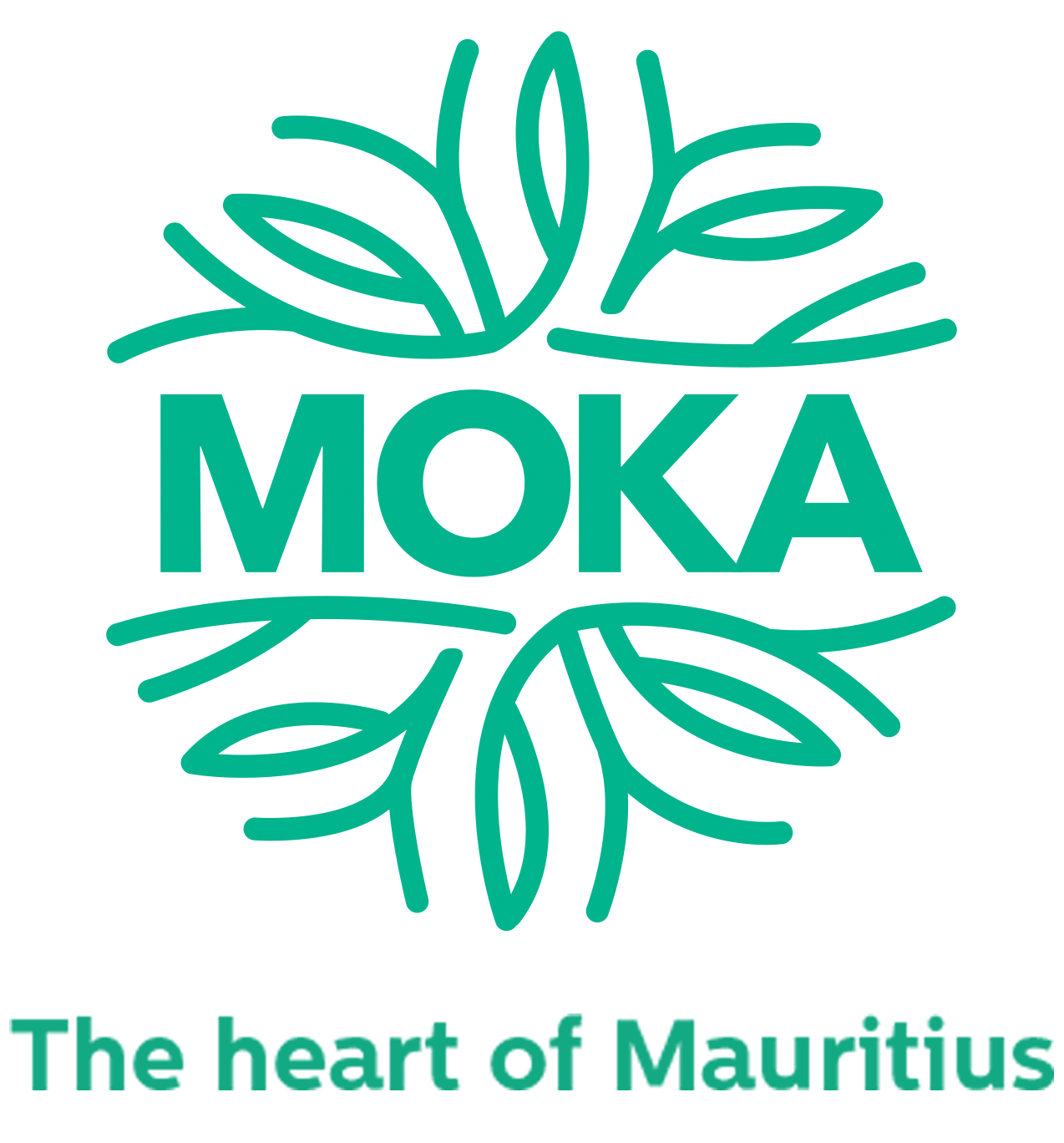Only 6% of waste produced in Mauritius is recycled. The figure is alarming and as a sustainable city, Moka has undertaken to encourage sorting by providing the city’s main neighbourhoods with a dozen voluntary drop-off points.
Mauritius still lagging behind
Sorting is not yet an automatic behaviour in Mauritius. There is no clear legal framework to regulate the activities of local players (collectors, recyclers and exporters) and there are not enough voluntary drop-off points – i.e. publicly accessible waste sorting units. Despite this, local initiatives are growing and an increasing number of Mauritians now want to recycle their waste. “Sorting has become inevitable with the saturation of the Mare Chicose landfill,” says the smart city’s Business Development Manager, Olaf Boullé.
Solutions provided by Moka
Sustainable waste management has become a priority for Moka. The city has installed a network of voluntary drop-off points to optimise collection. The 12 public use containers are located on the way in to Vivéa Business Park, in front of Synergy Sport and Wellness Institute at Helvetia, opposite the new Shell filling station at Telfair and in the Courchamps residential area. Three bins are available for recyclables (paper/cardboard, glass and plastic/aluminium); non-recyclable waste can also be deposited in a fourth one to avoid contaminating the sorting bins. Explanatory signs and stickers have been placed at each site to guide users. “We hope that this project will encourage a greater number of people to sort their waste, which could lead to creating new sites in the future,” says Olaf Boullé.

The Finnish brand Molok was chosen for its sleek design and diversity of features. The containers have a large capacity, which is enhanced by the compaction of the waste by its own weight. The collection frequency is also reduced, thus bringing down costs and CO₂ emissions from garbage trucks. Moreover, 60% of the Molok containers are located underground to save space and reduce smells given that the oldest waste is at the bottom, in the coolest part, which actually benefits from the low temperatures underground. The local supplier of Molok containers, Green Ltd uses a boom truck for collection. There is a second sorting stage in a warehouse prior to sending the waste to the island’s various recyclers.
Digital waste management
Each Molok container is equipped with an Internet of Things (IoT) sensor that informs Green Ltd about its fill rate to enable the company to optimise the collection schedule. Additionally, users will soon be able to access information on the location and fill rates of the Molok containers as well as sorting guidelines on the city’s website, moka.mu

Smarting the city
“Proper waste management is an essential service for a smart city,” says Olaf Boullé. In addition to encouraging recycling, the installation of Molok containers is a smart initiative that aims to bring about lasting change in the habits of the people of Moka.
“Waste segregation also allows to track and record the amount of waste and spoilage generated. From this awareness and the implementation of tools for a circular economy, we can reduce overall waste generation,” says Moka Smart City’s General Manager, Samuel de Gersigny.
